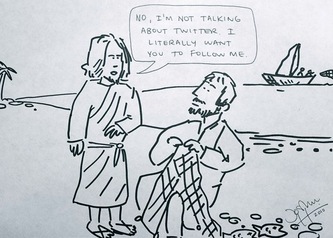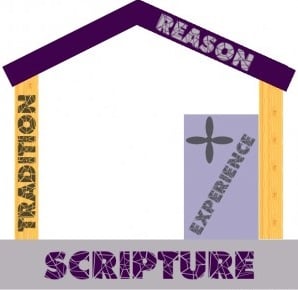 Imagine a world where the worst of offenders or the least conforming or the most offensive — in other words, sinners — are restored to the table of fellowship.
Imagine a world where the worst of offenders or the least conforming or the most offensive — in other words, sinners — are restored to the table of fellowship.
15:11 Then Jesus said, “A man had two sons. 15:12 The younger of them said to his father, ‘Father, give me the share of the estate that will belong to me.’ So he divided his assets between them. 15:13 After a few days, the younger son gathered together all he had and left on a journey to a distant country, and there he squandered his wealth with a wild lifestyle. 15:14 Then after he had spent everything, a severe famine took place in that country, and he began to be in need. 15:15 So he went and worked for one of the citizens of that country, who sent him to his fields to feed pigs. 15:16 He was longing to eat the carob pods the pigs were eating, but no one gave him anything. 15:17 But when he came to his senses he said, ‘How many of my father’s hired workers have food enough to spare, but here I am dying from hunger!15:18 I will get up and go to my father and say to him, “Father, I have sinned against heaven and against you. 15:19 I am no longer worthy to be called your son; treat me like one of your hired workers.”‘ 15:20 So he got up and went to his father. But while he was still a long way from home his father saw him, and his heart went out to him; he ran and hugged his son and kissed him. 15:21 Then his son said to him, ‘Father, I have sinned against heaven and against you; I am no longer worthy to be called your son.’ 15:22 But the father said to his slaves, ‘Hurry! Bring the best robe, and put it on him! Put a ring on his finger and sandals on his feet! 15:23 Bring the fattened calf and kill it! Let us eat and celebrate, 15:24 because this son of mine was dead, and is alive again – he was lost and is found!’ So they began to celebrate.
15:25 “Now his older son was in the field. As he came and approached the house, he heard music and dancing. 15:26 So he called one of the slaves and asked what was happening. 15:27 The slave replied, ‘Your brother has returned, and your father has killed the fattened calf because he got his son back safe and sound.’ 15:28 But the older son became angry and refused to go in. His father came out and appealed to him, 15:29 but he answered his father, ‘Look! These many years I have worked like a slave for you, and I never disobeyed your commands. Yet you never gave me even a goat so that I could celebrate with my friends! 15:30 But when this son of yours came back, who has devoured your assets with prostitutes, you killed the fattened calf for him!’ 15:31 Then the father said to him, ‘Son, you are always with me, and everything that belongs to me is yours. 15:32 It was appropriate to celebrate and be glad, for your brother was dead, and is alive; he was lost and is found.'”

